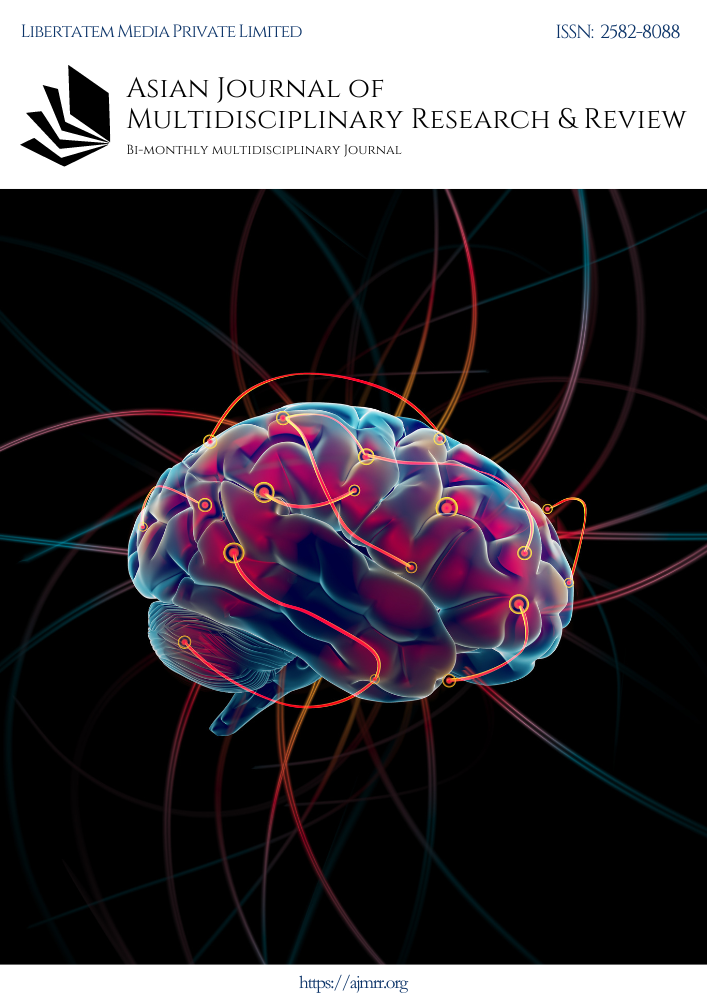EYEWITNESSES TESTIMONIES - A CRITICAL ANALYSIS OF ITS RELIABILITY AND ADMISSIBILITY UNDER THE INDIAN EVIDENCE ACT
Abstract
More than once, eyewitness testimony, given at the right time and the right place has changed the course of world history. The eyewitness testimonies of the disciples of Jesus who authored the Gospels found their way to the New Testament and helped establish and spread a major world religion. The eyewitness accounts of Holocaust survivors have kept alive the memory of all those who perished in Nazi Germany. At the Nuremberg Trials, eyewitness testimonies of survivor like Marie-Claude Vaillant-Couturier and perpetrators such as Hermann Göring and Otto Ohlendorf were instrumental in shedding light on the Jewish genocide and securing conviction.
However, eyewitness testimonies have come under sharp criticisms in recent times. This paper attempts to examine the reliability and admissibility of eyewitness testimony in India. By studying the common practice of courts, the paper sheds light on numerous problems that arise with respect to the application of and the jurisprudence behind eyewitness testimonies. It is seen that courts in India tend to place unfounded confidence upon eyewitness testimony, often at the cost of examining other more compelling and scientifically sound evidence. This practice has had severely adverse ramifications for the rights of the accused and has on some occasions led to wrongful convictions too. The paper concludes by offering explanations from the field of psychology and neuroscience on why eyewitness accounts are unreliable, and an alternative way forward is suggested.
Downloads
Downloads
Published
Issue
Section
License

This work is licensed under a Creative Commons Attribution-NonCommercial-ShareAlike 4.0 International License.
License Terms
Ownership and Licensing:
Authors of research papers submitted to the Asian Journal of Multidisciplinary Research & Review (AJMRR) retain the copyright of their work while granting the journal certain rights. Authors maintain ownership of the copyright and grant the journal a right of first publication. Simultaneously, authors agree to license their research papers under the Creative Commons Attribution-ShareAlike 4.0 International (CC BY-SA 4.0) License.
License Permissions:
Under the CC BY-SA 4.0 License, others are permitted to share and adapt the work, even for commercial purposes, as long as proper attribution is given to the authors and acknowledgment is made of the initial publication in the Asian Journal of Multidisciplinary Research & Review. This license allows for the broad dissemination and utilization of research papers.
Additional Distribution Arrangements:
Authors are free to enter into separate contractual arrangements for the non-exclusive distribution of the journal's published version of the work (e.g., posting it to institutional repositories or publishing it in books), provided they acknowledge the initial publication of the work in the Asian Journal of Multidisciplinary Research & Review.
Online Posting:
Authors are encouraged to share their work online (e.g., in institutional repositories or on personal websites) both prior to and during the submission process to the journal. This practice can lead to productive exchanges and greater citation of published work.
Responsibility and Liability:
Authors are responsible for ensuring that their research papers do not infringe upon the copyright, privacy, or other rights of any third party. The Asian Journal of Multidisciplinary Research & Review disclaims any liability or responsibility for any copyright infringement or violation of third-party rights in the research papers.



